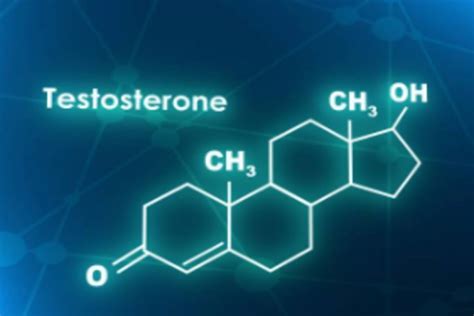Maximize natural T? Best diet & training for sustained male performance?

Understanding Natural Testosterone and Its Importance
Testosterone, often hailed as the cornerstone of male vitality, plays a pivotal role in far more than just muscle mass and libido. Optimal levels contribute significantly to energy, mood regulation, cognitive function, bone density, and overall metabolic health. While synthetic options exist, focusing on natural methods to boost testosterone offers a sustainable and holistic path to improved well-being and sustained performance. This article delves into the most effective dietary and training strategies, alongside crucial lifestyle considerations, to help you naturally optimize your testosterone levels.
Dietary Pillars for Testosterone Optimization
What you put into your body directly impacts hormone production. A balanced diet rich in specific macronutrients and micronutrients is non-negotiable for healthy testosterone levels. Conversely, poor nutritional choices can actively suppress them.

Healthy Fats: Your Hormonal Building Blocks
Cholesterol, a precursor to testosterone, relies on a sufficient intake of healthy fats. Don’t shy away from fats; embrace them. Focus on monounsaturated and polyunsaturated fats found in:
- Avocados: Rich in healthy fats and essential nutrients.
- Nuts and Seeds: Almonds, walnuts, chia seeds, and flaxseeds offer vital fatty acids.
- Olive Oil: A staple of the Mediterranean diet, known for its health benefits.
- Fatty Fish: Salmon, mackerel, and sardines are excellent sources of Omega-3 fatty acids, which support overall hormone health.
Limit trans fats and excessive saturated fats from processed foods, which can have detrimental effects on health and potentially hormone balance.
Protein and Carbohydrates: The Power Couple
Adequate protein intake is essential for muscle repair and growth, which in turn supports a healthy hormonal environment. Aim for a variety of lean protein sources:
- Lean Meats: Chicken, turkey, lean beef.
- Eggs: Especially the yolks, which contain cholesterol and vitamins crucial for T production.
- Dairy: Greek yogurt, cottage cheese.
- Legumes: Lentils, beans.
Complex carbohydrates provide sustained energy for workouts and recovery, preventing energy dips that can stress the body. Choose whole grains, fruits, and vegetables over refined sugars and processed carbs. These also provide vital fiber and antioxidants.
Micronutrients: The Unsung Heroes
Several vitamins and minerals are directly involved in testosterone synthesis and regulation:
- Zinc: Crucial for hormone production. Found in oysters, red meat, shellfish, and pumpkin seeds.
- Vitamin D: More a hormone than a vitamin, adequate levels are strongly linked to higher testosterone. Get it from sunlight exposure, fatty fish, and fortified foods.
- Magnesium: Supports muscle function and sleep, both indirectly aiding T. Found in leafy greens, nuts, seeds, and whole grains.
- Boron: Emerging research suggests it can increase free testosterone. Found in apples, grapes, and nuts.
Training Regimen for Testosterone Boost
Exercise is a powerful natural testosterone booster, but the type and intensity matter. The goal is to stimulate hormone release without overtraining, which can have the opposite effect.

Strength Training: Compound Lifts are King
Resistance training, particularly exercises that engage large muscle groups, is highly effective. Focus on compound movements:
- Squats: Works legs, glutes, core.
- Deadlifts: Full-body movement, excellent for hormone response.
- Bench Press/Overhead Press: Targets chest, shoulders, triceps.
- Rows: Strengthens back and biceps.
Aim for 3-4 strength training sessions per week, with adequate rest between workouts. Lift heavy enough to challenge your muscles, typically 3-6 sets of 6-12 repetitions to optimize muscle growth and hormonal response.

High-Intensity Interval Training (HIIT)
Short, intense bursts of exercise followed by brief recovery periods can also stimulate testosterone and growth hormone. Examples include sprints, battle ropes, or cycling with intervals. Incorporate 1-2 HIIT sessions per week, being mindful not to overdo it in conjunction with strength training.
Avoid Overtraining and Chronic Cardio
While some cardio is beneficial for cardiovascular health, excessive endurance training (marathon running, long cycling sessions) can lead to elevated cortisol levels and potentially suppress testosterone. Balance is key; prioritize strength and HIIT, and keep moderate cardio in check.
Crucial Lifestyle Factors for Sustained Performance
Beyond diet and training, several lifestyle elements significantly influence your body’s ability to produce and utilize testosterone.

Prioritize Quality Sleep
Sleep is when your body repairs, regenerates, and produces hormones. Chronic sleep deprivation (< 7 hours) can drastically lower testosterone levels. Aim for 7-9 hours of high-quality sleep per night. Establish a consistent sleep schedule, create a dark and cool sleep environment, and limit screen time before bed.
Manage Stress Effectively
High stress leads to elevated cortisol levels. Cortisol and testosterone have an inverse relationship; as one rises, the other tends to fall. Incorporate stress-reduction techniques into your daily routine:
- Meditation and mindfulness
- Deep breathing exercises
- Yoga
- Spending time in nature
- Hobbies and social connection

Minimize Exposure to Endocrine Disruptors
Certain chemicals in our environment, known as endocrine-disrupting chemicals (EDCs), can mimic or interfere with hormones, including testosterone. Try to limit exposure by:
- Using glass or stainless steel containers instead of plastic for food and drinks.
- Choosing organic produce when possible to reduce pesticide exposure.
- Being mindful of personal care products and household cleaners.
Conclusion: A Holistic Approach for Lasting Results
Maximizing natural testosterone and sustaining male performance isn’t about quick fixes or magic pills; it’s about adopting a comprehensive, holistic approach. By consistently integrating a nutrient-dense diet, effective strength and HIIT training, sufficient quality sleep, and proactive stress management, you empower your body to naturally optimize its hormonal balance. This commitment to a healthy lifestyle not only boosts testosterone but also enhances overall vitality, mood, energy, and long-term well-being.









